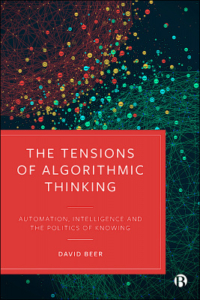Twitter is currently providing the backdrop for a relatively lively yet fairly tedious soap opera. In recent episodes Elon Musk has taken the role of protagonist (or should that be antagonist?) in a rather clumsy storyline. As things stand it’s not clear exactly where the narrative is heading but it doesn’t feel like things will resolve in an entirely positive manner. The plot seems to be taking us towards some sort of comeuppance.
I doubt I’m alone in developing Twitter-story fatigue. I’ve been hesitant to write about it; there is already so much coverage and things seem to be moving a little too quickly to really comprehend. By the time we react – such as to the most recent reports of disagreements between Twitter and Apple – they’ve moved on. Despite all the upheavals and the piling-up of news reports there are three things that might explain the apparent drama at Twitter.
First, we should remember that crew-neck capitalists place great value on disruption. They pride themselves on their ability to disrupt. Disruptiveness is a form of capital in Silicon Valley and across the tech sector. Unsettling things and causing chaos are imagined to be markers of alternative thinking. Disruption is considered a badge of honour; disruption on scale magnifies the accolades in tech cultures. The events at Twitter can be understood through that lens. The more disruption that is created, the greater the innovation and outside-of-the-box thinking is imagined to be. Musk may be showing his credentials as an archetypal tech leader, who seeks to upend anything that looks like it has become conventional. The problem, of course, is that such an attitude is always likely to lead to disruption solely for disruption’s sake, especially when power is judged by the ability to disrupt.
Second, we might reflect on the type of organisational structures that are now the objective in the sector. With recent cutbacks in staffing Twitter, along with Meta, tech platforms seem to be aiming for a kind of small state social media. That is to say that they seem to be moving toward reduced centres and even less governed spaces. There is a shrinking of capacity and a narrowing of effort and resource. Social media seem to be moving into a form of austerity after their boom period, which will have consequences for how they are run and for the structures and infrastructures through which they operate. A reconfiguration of the organisational structures behind our social media is occurring. It is unclear what this will now mean for moderation practices and regulation.
Finally, these platforms are entering into competition over what is now being called the metaverse. They all want to be the platform that becomes the space that incorporates all features of social life. Getting to a tangible metaverse first is to have control over an imagined future. Bruno Maçães has recently argued that the metaverse is a key aspect of Musk’s vision for Twitter. Grasping that vision is necessary for understanding what is happening now. The aim of reshaping the platform toward a space that never needs to be left and that is more corporeal is likely to be informing some of the decisions in the present. It’s not clear exactly how this reshaping is occurring or what level of strategy is behind it, but the constant investment in where things are likely to head will be part of the drama now. These tech platforms are competing over the right to envision the future, which impacts on what they are doing now. As they settle on the metaverse as a kind of unshakable vision, so the competition becomes one of the rights to dictate its terms, rules and form.
Of course, soap operas don’t really have endings; they don’t reach a conclusion as such. Storylines temporarily crescendo while moving on to the next thing. Some characters stay; others move on. In many ways, what is happening at Twitter is less predictable than a standard soap opera story. It’s not clear what will happen in the Twitter soap opera, but there are little glimpses that might give us an inkling of both character and motivation. Things may seem chaotic and the details may be overwhelming in their volume, still these small glimpses tell us something about the direction of social media and tech platforms in general.
David Beer is Professor of Sociology at the University of York. His new book The Tensions of Algorithmic Thinking has just been published by Bristol University Press.
 The Tensions of Algorithmic Thinking by David Beer is available on the Bristol University Press website. Order here (EPUB at £26.99, hardback at £80.00).
The Tensions of Algorithmic Thinking by David Beer is available on the Bristol University Press website. Order here (EPUB at £26.99, hardback at £80.00).
Bristol University Press/Policy Press newsletter subscribers receive a 25% discount – sign up here.
Follow Transforming Society so we can let you know when new articles publish.
The views and opinions expressed on this blog site are solely those of the original blog post authors and other contributors. These views and opinions do not necessarily represent those of the Policy Press and/or any/all contributors to this site.
Image credit: hapabapa on iStock


